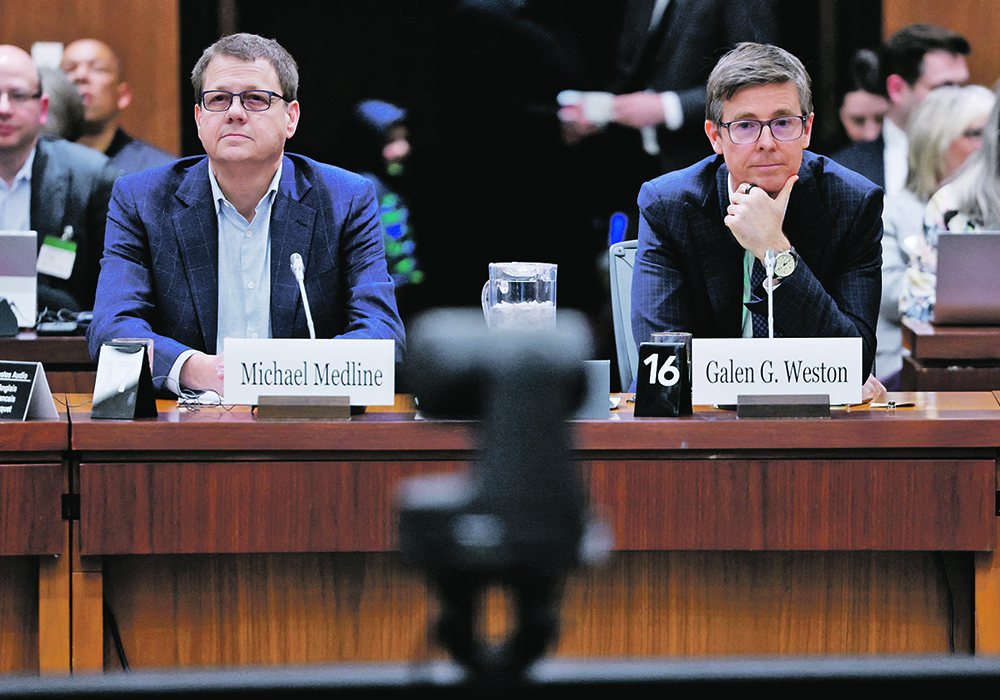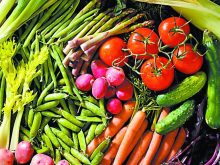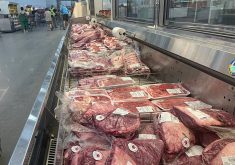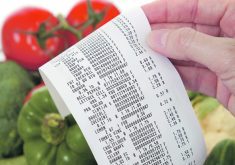U of G food economist agrees with company leaders, saying there is not a lot of evidence that grocers are price gouging
OTTAWA — Senior executives from major grocery companies who appeared last week before a House of Commons agriculture committee examining food price inflation said they aren’t to blame for higher food prices.
Michael Medline, chief executive officer of Empire Foods, said food inflation is a global phenomenon.
“At Empire, I can assure you we are doing everything we can to contain price increases,” he told the committee. “We’re doing it on paper-thin profit margins of 2.5 percent.”
Read Also
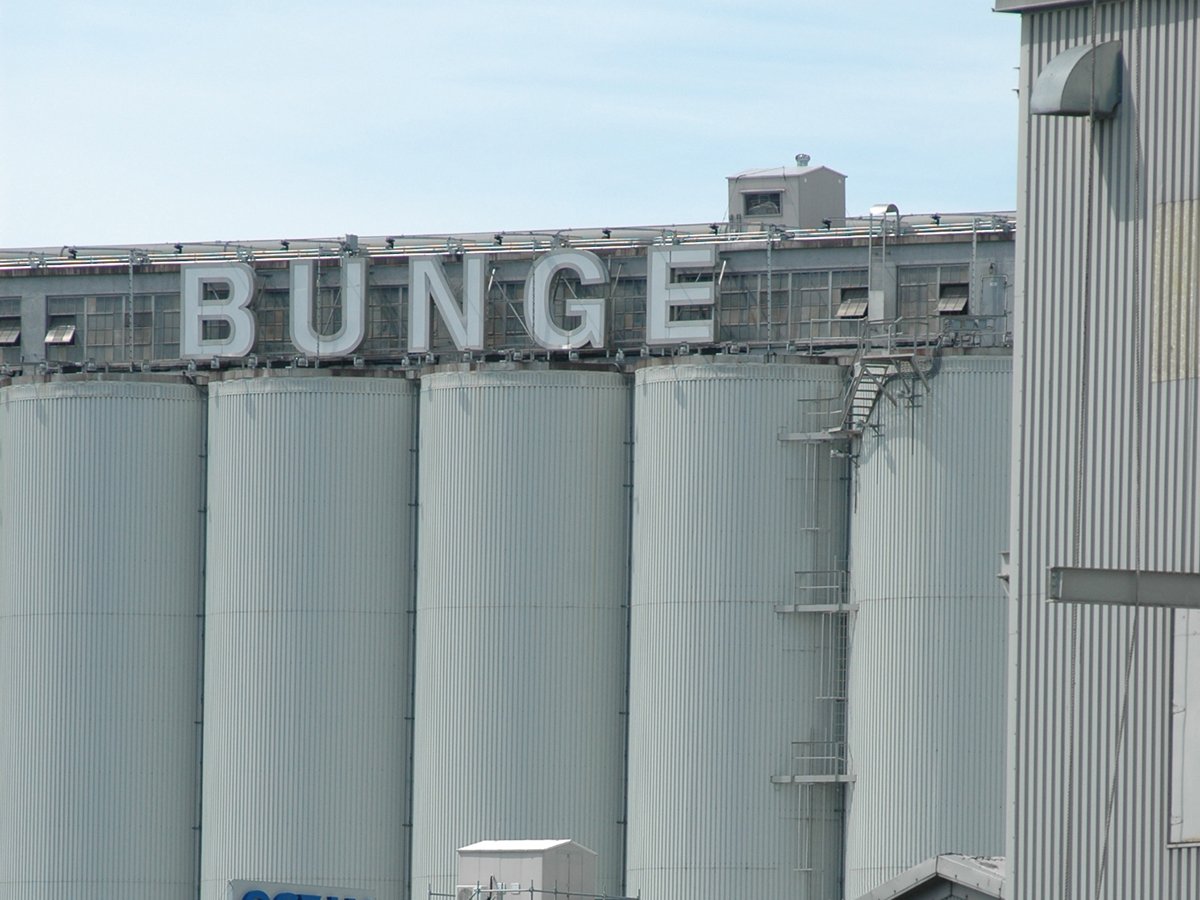
Bunge’s crop mix is changing
Bunge has predominantly been a soybean processing firm, but that’s about to change after the merger with Viterra with softseed processing and grain merchandising gaining ground.
He said the company is not profiting from inflation.
“It doesn’t matter how many times you say it, write it or tweet it, it is simply not true,” he said.
Cost increases from suppliers throughout the grocery industry have been affecting all companies. He said suppliers continue to place cost increase requests and those may slow by April.
Galen Weston, president of Loblaw, said that company earns only $1 on a $25 grocery bill. He said grocers aren’t profiteering.
“Since inflation took off 18 months ago, the cost of that $25 grocery basket has increased just under $4,” he said during his testimony. “During that same period, the grocers’ profit increased by 15 cents. In other words, food prices have increased 25 times faster than profits, and at Loblaw, none of those profits came from higher food margins.”
NDP leader Jagmeet Singh, who attended the meeting with a stack of paper he said contained 2,000 consumer questions about food inflation, confronted Weston about record profits.
“How much profit is too much profit?” he asked. “You’re making more money than you’ve ever made.”
Weston repeated his example of the $1 profit. But that didn’t sit well with Singh, who said Loblaw is making $1 million per day in excess profit.
Weston said he understands the frustration of people who have to make grocery choices.
“We are actively losing money on core commodities, milk, vegetable oil, butter, certain cheeses, and all kinds of items, every day of the week,” he said, adding that reasonable profitability is an important part of operating a successful business.
University of Guelph professor and food economist Mike Von Massow said there isn’t a lot of evidence that grocers are price gouging.
He questioned the value of demanding the CEOs attend the meeting after the committee had previously heard from chief financial officers of the same grocers.
“If anyone expected the CEOs to come and say something different than the CFOs had said I think they were being delusional or at the very least naïve,” he said in an interview. “So it was an opportunity for Jagmeet Singh to bang on the table and say how much is too much. It was an opportunity for the Conservatives to focus on the carbon tax, which probably matters but is not the biggest factor in this, and really I think do Canadians a disservice by not talking about some of the broader reasons that food prices are up.”
He said making Canadians believe that government can somehow bring grocers in line to solve the problem is disingenuous.
Von Massow recalled the uproar a few years ago when cauliflower was about $10 per head because of a weather event.
Today, the 11.7 percent inflation rate results from multiple events, he said. They include the low Canadian dollar, higher fuel prices, lack of truck drivers and resulting freight cost hikes, weather events, disease issues and the war in Ukraine.
“We see sort of a flat line on the top line of inflation but underneath that we see a whole bunch of variability, which frankly also suggests that grocers aren’t contributing to it a whole bunch,” he said.
Flour and pasta are up more than 20 percent because of the war, he said. Vegetable oil prices are up because of the war and countries that have limited exports of oil to protect domestic markets and drive up international prices. Tomato prices are up more than 20 percent because of flooding in the Salinas Valley where Canada buys most of its tomatoes in winter.
“If you look at pork, it’s only up two percent in the last year,” said Von Massow. “All of these factors happening underneath are causing different things to go up and down at different rates and creating this relatively flat top line that hides all the things that are going on underneath it.”
It’s no solace to Canadians that food inflation is lower than in other countries around the world, but Von Massow said there is no quick fix.
There are seasonal price differences, typically in summer when Canadian produce comes to market and prices may come down as a result.
Von Massow said the line of questioning by committee members is curious as a grocery code of conduct likely wouldn’t affect consumer prices, although it could help farmers and suppliers who sell to the grocers. In fact, he said a code would not reduce prices and has the potential to increase them.
He added the committee was far too focused on grocers.
“I think the committee might benefit from hearing from a broader range of voices on why food prices are going up to help Canadians understand some of these issues and perhaps be realistic on what we can accomplish to make progress,” he said. “There’s lots of people who comment on food prices in this country who could provide perspective and to my knowledge none of them have been invited.”


